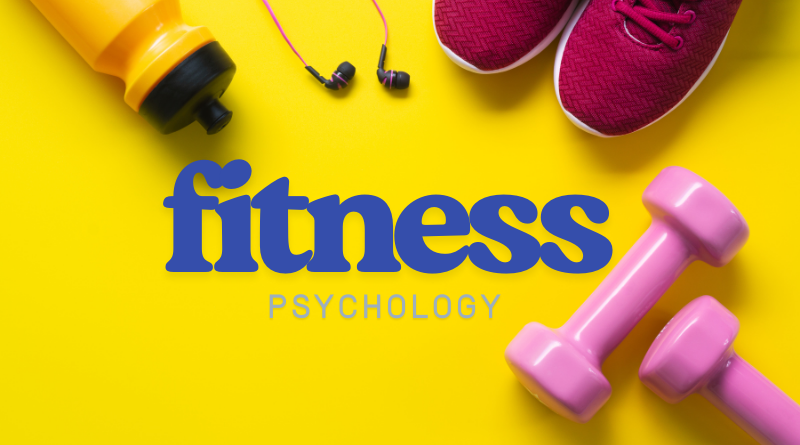Fitness Psychology in Retirement: How to Empower Your Body and Mind for a Fulfilling Life
Reclaiming Energy, Confidence, and Joy Through Movement and Mindset
Why Fitness Psychology Matters in Retirement
Retirement is a life transition—one that often changes how we view our identity, our daily routines, and our long-term health. For many, it’s a time to shift from productivity and career to rest and reflection. But it can also be a time when health concerns increase, energy wanes, and motivation feels harder to access.
That’s where fitness psychology comes in. It helps you reconnect with movement, energy, and self-worth—not through guilt or pressure, but through purpose, empowerment, and a deep understanding of your own motivation. By approaching fitness with the right mindset, you can create sustainable habits that not only benefit your body, but uplift your mental and emotional well-being too.
What Is Fitness Psychology?
Fitness psychology is the study and practice of how your thoughts, feelings, and behaviors influence your physical health choices. It focuses on what motivates you, how you overcome setbacks, and how to develop consistency—not perfection.
In retirement, this approach is incredibly valuable. Without a rigid work structure, your routines are more flexible. That freedom is a gift—but it also means you need to create new habits with intention and compassion.
Building an Empowered Mindset for Fitness
Instead of obsessing over outcomes like weight loss or physical appearance, retirement invites you to focus on how you want to feel: more energetic, more mobile, more confident. This shift leads to empowered motivation that’s rooted in personal values—not societal pressures.
Ask yourself:
– What kind of life do I want to live now?
– What activities bring me joy, purpose, or connection?
– How can movement support my independence and happiness?
Setting meaningful, realistic goals (like being able to garden without back pain, or walk comfortably on a holiday) gives your fitness efforts lasting relevance.
How to Stay Motivated Beyond the First Week
1. Know Your Why: Anchor your efforts in purpose. Movement is not a chore—it’s your gateway to vitality, mobility, and freedom.
2. Celebrate Small Wins: Progress isn’t just hitting a goal weight. It’s showing up, drinking more water, or walking a little farther today than yesterday.
3. Create Accountability: Whether it’s a walking buddy, a weekly class, or a fitness journal, tracking your progress helps maintain momentum.
4. Make It Enjoyable: Choose activities you look forward to. The best workout is the one you’ll actually do consistently.
5. Expect and Accept Setbacks: Life happens. Skipping a few days doesn’t mean you’ve failed. It means you’re human. Begin again gently.
Types of Fitness That Support Longevity
Fitness in retirement doesn’t have to be intense to be effective. A well-rounded approach includes:
– Aerobic Exercise: Supports heart health and endurance (walking, swimming, cycling).
– Strength Training: Maintains bone density and muscle mass (resistance bands, light weights).
– Flexibility: Prevents injuries and increases range of motion (stretching, yoga, tai chi).
– Balance Training: Reduces fall risk and supports mobility (standing leg lifts, heel-to-toe walks).
– Mindful Movement: Lowers stress and improves mental clarity (breathwork, Pilates, gentle movement sequences).
Mindset Shifts That Make the Difference
– From “I have to” → “I get to”: Movement is a privilege. Every step is an act of self-care.
– From “I’m too old” → “It’s never too late”: Studies show people can build strength, improve endurance, and sharpen mental clarity well into their 70s and beyond.
– From “All or nothing” → “Something is better than nothing”: Even five minutes of stretching matters. Consistency wins over intensity.
Nutrition, Hydration, and Rest—The Other Pillars
Fitness psychology isn’t only about movement—it’s also about treating your body with kindness through nourishment, hydration, and recovery.
– Eat to Feel Energized: Focus on whole, unprocessed foods like vegetables, fruits, whole grains, lean proteins, and healthy fats.
– Stay Hydrated: Dehydration often mimics fatigue and can impair brain function.
– Prioritize Sleep: Deep rest restores muscles, regulates mood, and enhances memory.
The Social and Emotional Benefits of Moving More
Fitness isn’t just physical—it’s deeply emotional. Moving your body boosts feel-good chemicals like endorphins and serotonin. It reduces anxiety, improves sleep, and helps prevent depression.
Better yet, when you move with others—whether in a class, a walking group, or a community event—you gain connection. That connection strengthens not only your social life but your cognitive and emotional resilience too.
In Summary: Empowerment Through Action
Fitness psychology reminds us that how we think about movement matters just as much as the movement itself.
In retirement, you have the opportunity to rewrite your story—not by chasing youth, but by building strength, balance, joy, and confidence in your body, on your own terms. Whether it’s a gentle yoga session, a dance in the kitchen, or a walk through the park, every step is a statement:
You are still growing. You are still powerful. And your best years can be your strongest.

